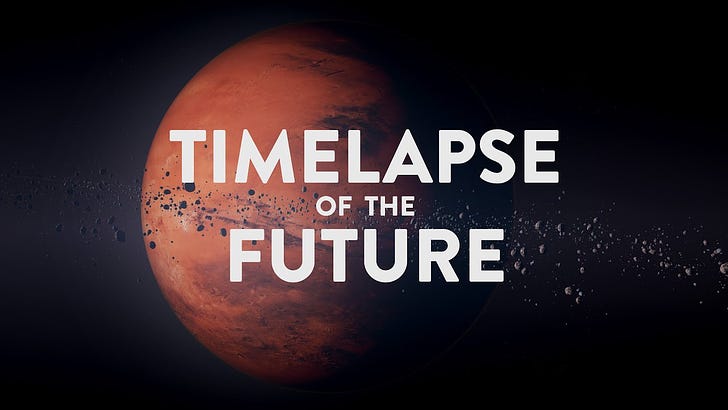January Round-up: The Strategic value of optimism
This month on B.S., we looked at the rise and fall of the Nazis, the long view of history, and how to convert bleak times into opportunities for a better future.
You did it! January is over! This terrible month in this terrible year of our lord, 2025, has drawn to a close and you made it through! I congratulate you on your continuing to be alive, it’s no small feat. If you, like me, spent much of your month curled in a ball, here’s what you missed on Better Strangers (plus a few other links I think are worth checking out).
This Month’s B.S.
I wrote four B.S. articles this month, two for paid subscribers and two for all. Here’s what you might have missed:
I looked at Mark Fisher’s Capitalist Realism, particularly its examination of late capitalism’s bureaucratic similarities to Stalinism. (Paid)
I TL;DR’d William Shirer’s epic The Rise and Fall of the Third Reich, with particular emphasis on the lessons that Americans can take from Germany’s experiment in fascism. (Free)
In the context of the LA wildfires, I reexamined Rebecca Solnit’s A Paradise Built in Hell, and how these never-ending catastrophes may paradoxically give us a space in which we can rebuild American society into something better. (Paid)
I reviewed the lessons of two recent books — Emily and Amelia Nagoski’s Burnout and Devon Price’s Laziness Does Not Exist — which argue that our tendency to view our exhaustion as a sign of laziness is ill-placed, and that if we’re tired all the time, our body is telling us something is wrong. (Free)
A timelapse of the Future
One thing that makes me feel better whenever things on earth feel particularly bleak is pondering the inevitable heat death of the universe. This may sound counterintuitive, but I’ve found that things that make me feel small and insignificant also make the problems of the world seem small and insignificant. In that vein, I was thrilled a few weeks back when I stumbled across this YouTube video that takes what we know about the likely future of our civilization, our planet, our solar system, and our universe, and condenses it all into a 20-minute video.
One particularly mind-blowing fact was that in the grand scale of time, life will only be able to exist in the universe for a very short period in what, in the grand scale, is only the very beginning of the universe’s existence. After a point, the stars wink out and everything is pulled into supermassive black holes, which will take a very long time to wink out themselves. While you might find yourself depressed by the idea of trillions upon trillions of years of total blackness, it is quite nice to recognize that we get to be alive now, when life can exist. In the grand scale, our time on earth is truly unique and quite precious.
The strategic value of optimism
In the wake of Trump’s second inauguration, I saw a lot of people sharing a fantastic old Noam Chomsky quote:
Optimism is a strategy for making a better future. Because unless you believe that the future can be better, you are unlikely to step up and take responsibility for making it so.
A similar sentiment was beautifully expressed in Sumit Paul-Choudhury’s lovely essay in the Guardian about how his wife’s death spurred him to become an optimist:
Once I started to think about it, optimism seemed like the only stance worth taking. At least expecting more out of life primed you to get more out of life, or so it seemed. But I wanted to practise a kind of optimism for which I could articulate a defence that amounted to more than just belief. I wanted to find a way of being an optimist that might actually help make the world better, rather than just assuming it somehow would be.
So I began to investigate what form that pragmatic, well-reasoned version of optimism might actually take. And what I learned was that optimism, despite my earlier assumptions, isn’t necessarily the product of naivety. It isn’t an indulgence that we can only afford when times are good. It’s a resource we can tap into when the going gets tough – and then it can make the difference between life and death.
Paul-Choudhury’s dream, when his wife died, had been to become a science writer, and he was specifically fixated on the excellent publication, The New Scientist. Up until that point, he’d been working in finance, and he didn’t see any way in which he could possibly elbow his way into the field, but his wife’s death made him feel as if there was nothing to lose. Today, he is the publication’s editor-in-chief.
None of this is to say that everyone who tries succeeds, but viewing optimism as a strategy rather than as a naive, poorly-thought-out viewpoint, seems to me to be about the only choice available to those of us who are currently staring into 2025’s Trumpian void.







